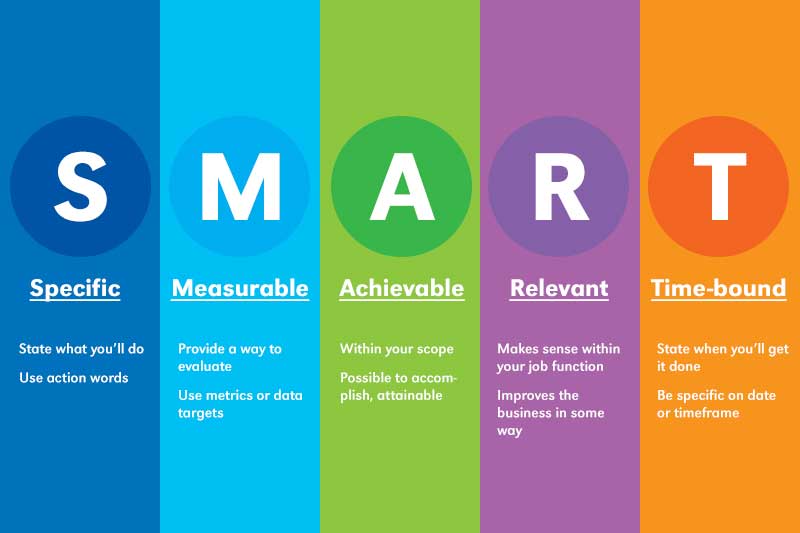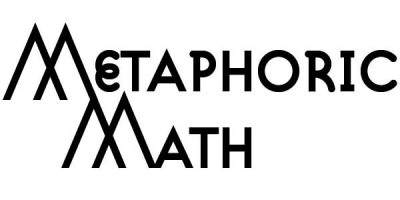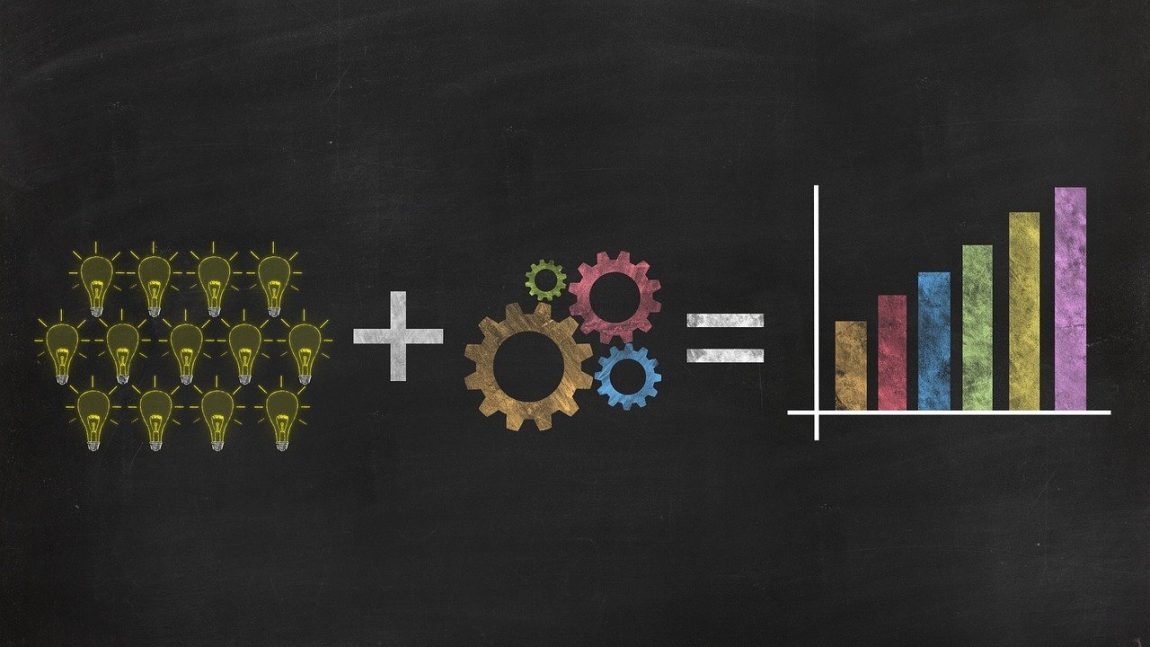Are goals the integral component in the formula for success?
Are you familiar with statistics on New Year’s resolutions? It’s that time of year again where about 60% of people start thinking about changes they want to make, yet an astonishing 8% of individuals who make New Year’s resolutions actually follow through consistently and meet their goals, according to Inc and the University of Scranton. Why do so many people even bother to make New Year’s resolutions when an overwhelming 80% are missing the mark by February?
Or, maybe those numbers are all wrong. Another survey by Marist shows that only 44% of Americans are likely to make New Year’s resolutions, with 68% reporting yes, they actually kept their resolutions to some degree.
I took a Statistics class the second semester of freshman year of college. At the time, I had a general interest in the topic but didn’t prioritize the course enough to devote much effort to the material outside class; I viewed it as a gen ed requirement that I just needed to pass with an average grade. Still, it’s a math discipline that I find immensely valuable to understand as it’s widely used to illustrate data that helps us make sense of our world.
As the years have passed and my perspectives broaden, I’ve become fascinated by statistical analysis as a method of providing context and framework for examining study results and weighing decisions. While it’s true that due diligence should be applied when using statistics to reinforce points of view since methods of data collection can skew results, for the sake of time I’m not going to dive into concepts like mean, standard deviations, random variations, bias, or dispersion…yet. But I digress.
After reading the statistics on New Year’s resolutions, I wondered how these numbers correlated to the proportion of high achievers (HA) in society. I haven’t come across a study that outlines HA’ results specifically related to New Year’s goals, but I did find one set of figures for how much of the general population is comprised of HA. In the United States, there is an 11:1 ratio; in Canada it is 8:1 and in Britain 6:1. HA are far from average.
While I’m sure there are plenty of HA who don’t make traditional resolutions, my theory is that HA form the majority of the people who are actually successful in achieving their New Year’s goals. What are they doing differently?
If you’ve read much at all in the entrepreneurship or self-help arenas, you’re probably familiar with S.M.A.R.T. goals. The acronym stands for Specific, Measurable, Achievable, Relevant, and Time-bound, and is an effective way to get serious about setting and achieving goals.

HA are often very focused on creating habits and routines that help them create a supportive environment to reach their goals. If you don’t have a strong track record of hitting your goals, try focusing on a small achievable goal in the form of a habit that can serve as a foundation for making subsequent goals easier to achieve. Maybe you choose to wake up 30 minutes earlier, or add 15 minutes of reading to your daily routine.
Success is a very subjective definition.
For the purpose of this discussion, let’s focus on how you personally define success across various categories within your own life. Is it measurable? Or merely based on feelings? What is the overall sum of the parts, and how does this analysis affect your self perception of your value and contribution to the world around you?
I’ve been grappling with all sorts of questions along these lines recently. I’m not claiming to have figured out the answers either. But I do have a great deal of information and ideas to explore as a result of years of reading, countless hours of listening to great teachers and podcasters, and an ever growing history of life experiences to evaluate and learn from.
Hindsight is 20/20.
So what? I can look back at my successes and failures over the years, and analyze the hell out of what I did wrong, what I did right, and what I could have changed. I can spout off all sorts of great business and life advice. But why do I continue to fall short of my potential, and keep repeating the same mistakes when I should know better?
In some ways, I’d like to think of myself as a high achiever. I’ve been self employed full time for a decade, and have taught myself a variety of valuable skills. But in other ways, I struggle with feeling inadequate and stuck in a life that is far smaller than the one I desire. I know the steps I should take if I want a mountain top experience, but studying the map is only the first part; the climb itself is the real challenge. And if you don’t prepare (ie, train to build physical endurance, pack the appropriate layers and gear, prepare for the unexpected storm, etc.), your chances of making it to the top are greatly diminished.
It recently dawned on me. I know plenty of things I could do to achieve more in life, but my available time, energy, and resources were not conducive to me putting in the effort required to do something significant like shift my business in a new direction. I’ve long had workaholic tendencies, and I finally began to realize that the very thing that I used to see as being productive was actually counterproductive and an excuse to not take responsibility for pushing myself to achieve bigger things. It was only after I started saying no and taking steps to reclaim my time and energy that I found capacity to set and achieve bigger goals and the momentum to keep moving forward. I’ll deep dive in the principle of using subtraction to multiply abundance in future posts, as it is a key to creating an environment that supports positive personal growth.
Sure, I’ve set and achieved plenty of goals over the years, but were they strategic and calculated? Did I write them down or just keep them in my head? Were they clearly defined? Did I regularly evaluate my progress? In many cases, the answer is no. Sure, there are things that I achieved once I decided I wanted them bad enough to take action, but I certainly haven’t gone to the effort of mapping out all the elements of SMART goals in most cases. I’ve never been one to make New Year’s resolutions; most of my goals just organically happen throughout the year whenever I end up feeling compelled to put the mental energy into doing or changing something.
I’m trying a new approach in 2020.
Maybe it has something to do with my affinity for number patterns and the symbolism that I’ve attached to the year 2020. A brand new decade and a connotation of clear vision seems like the perfect timing to take action and outline some clear goals, both short term for the months and years, and also long term for the decade. Could it be that goals are the taproot of the blossoming tree of success? Ultimately I think it largely boils down to habits, and in order to be intentional about habits, you must have goals as a basis for forming new habits.
Thus, the foundation for the #2020MathProject has begun to take shape. The second half of 2019 was filled with an array of major lifestyle changes that I credit for a recent increase in clarity and positive energy in my life. Changing up habits and daily routines continues to be a critical component of this shift, and my public commitment to the #2020MathProject is partly an accountability measure as well as a practical solution to an compelling desire to research, test, and document my observations in a way that I can go back and reference later. I consider it an added bonus that I’m able to conduct this experiment publicly, and hope to build a framework in the process of sharing my experiences that will serve as a guide to encourage positive personal growth in your life as well.
The clock is ticking…a new decade is just 2 weeks away. I’ll be revisiting this material in future writings, but for now I need to wrap up this post so I can spend some time outlining my own SMART goals and plans for the 2020 Math Project!
In the meantime, if you like the image below, here’s some other goal infographics for you to mull over as you contemplate setting your own resolutions and goals for 2020 and beyond.



Love this! Thank you for sharing!
Glad you enjoyed it!
Brave! But also scary and exciting. And inspiring. Maybe I’ll take something from it too? Maybe my NYR will be to write down my goals.
This is powerful; I hope its sentiment isn’t subsequently buried:
“I’ve long had workaholic tendencies, and I finally began to realize that the very thing that I used to see as being productive was actually counterproductive and an excuse to not take responsibility for pushing myself to achieve bigger things. It was only after I started saying no and taking steps to reclaim my time and energy that I found capacity to set and achieve bigger goals and the momentum to keep moving forward. I’ll deep dive in the principle of using subtraction to multiply abundance…”
I know it’s been said before but somehow it didn’t stick (with me).
And while the new decade is still a bit over a year off, the ticking over to a new number and zero, is momentous enough all its own.
PS. I did poorly in math (long story) but the fates of my life are such that it is my weakest skills or most resented ones, that are the most required in my work -life has a sense of humor. I Do Math All Day, Everyday. Advanced math I do spatially. Algebra 1 was the most I got but apparently, I now do calculus -that according to my math major SO. All applied math of course, no theoretical massaging of numbers (would be so much easier and faster). In sum, I’m looking forward to this!
The idea of subtraction being a key to creating more was the initial inspiration that led to this blog, and I will do my best to keep the sentiment top of mind.
Life definitely has a sense of humor. I just started thinking about the complex relationships of measurements in garment grade rule charts from a completely new perspective alongside the value of spatial understanding in applied math. Context is key.
You also bring up a solid point about 2020, as basic counting starts at 1 not zero. So 2020 can be viewed as a transitional year; 365+1 days to lay a stronger foundation for the next decade.